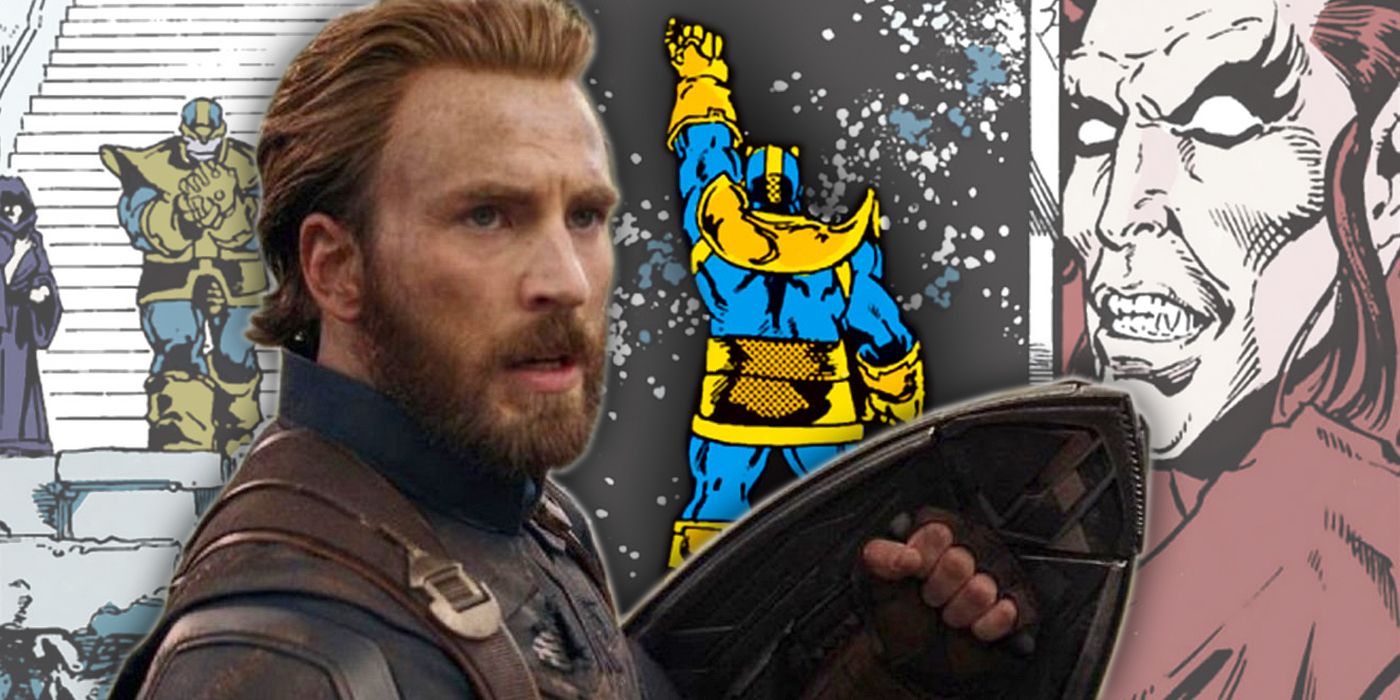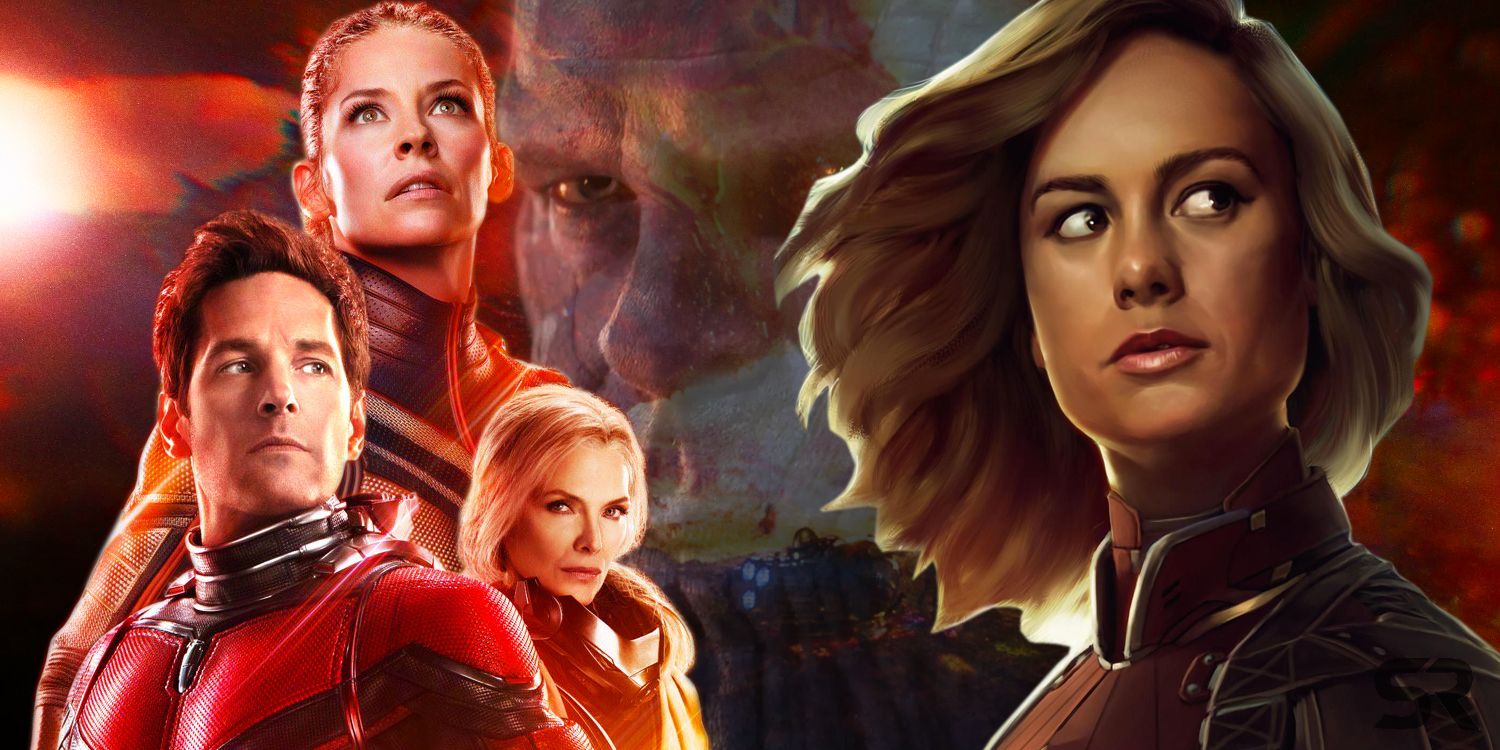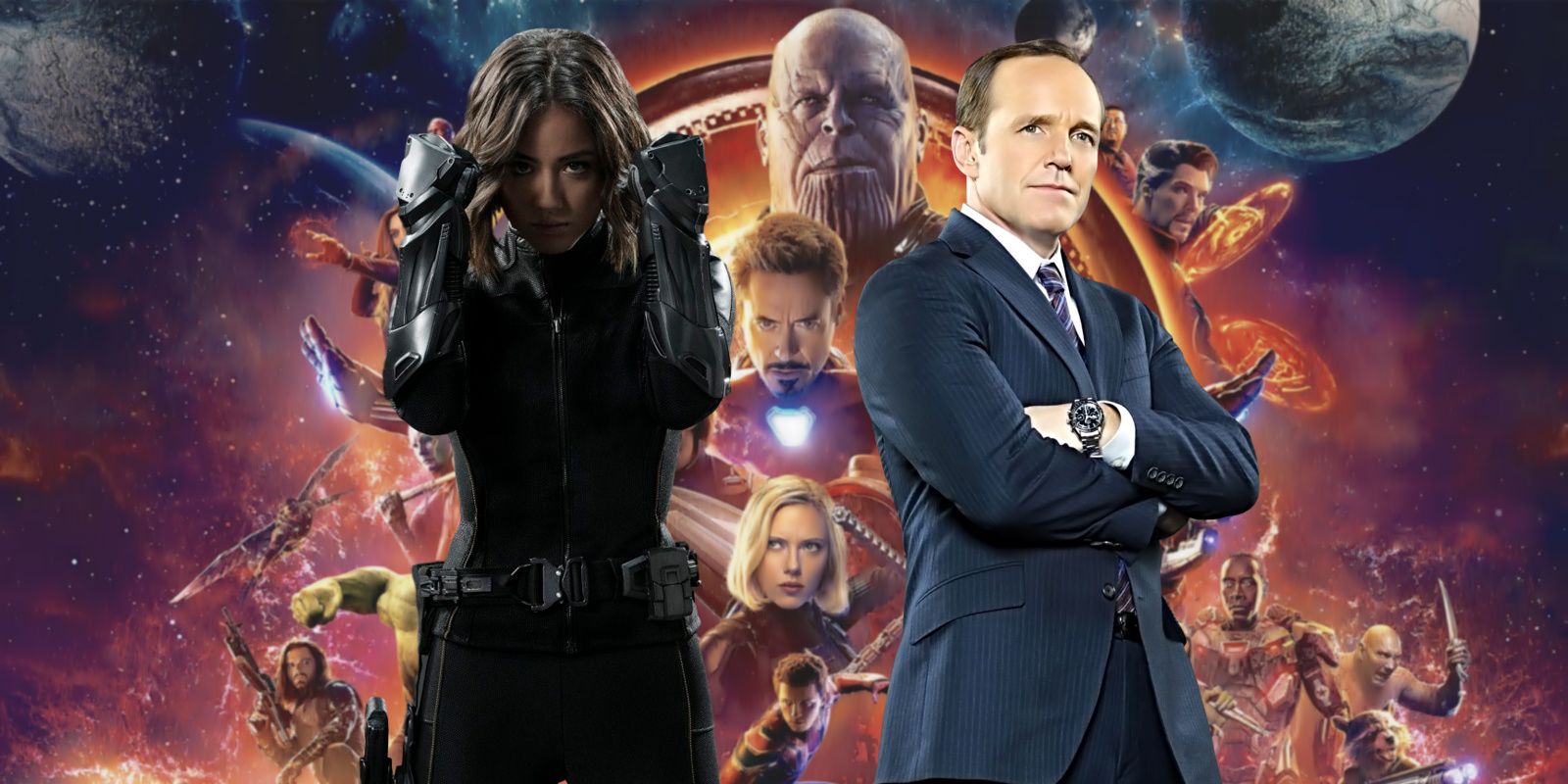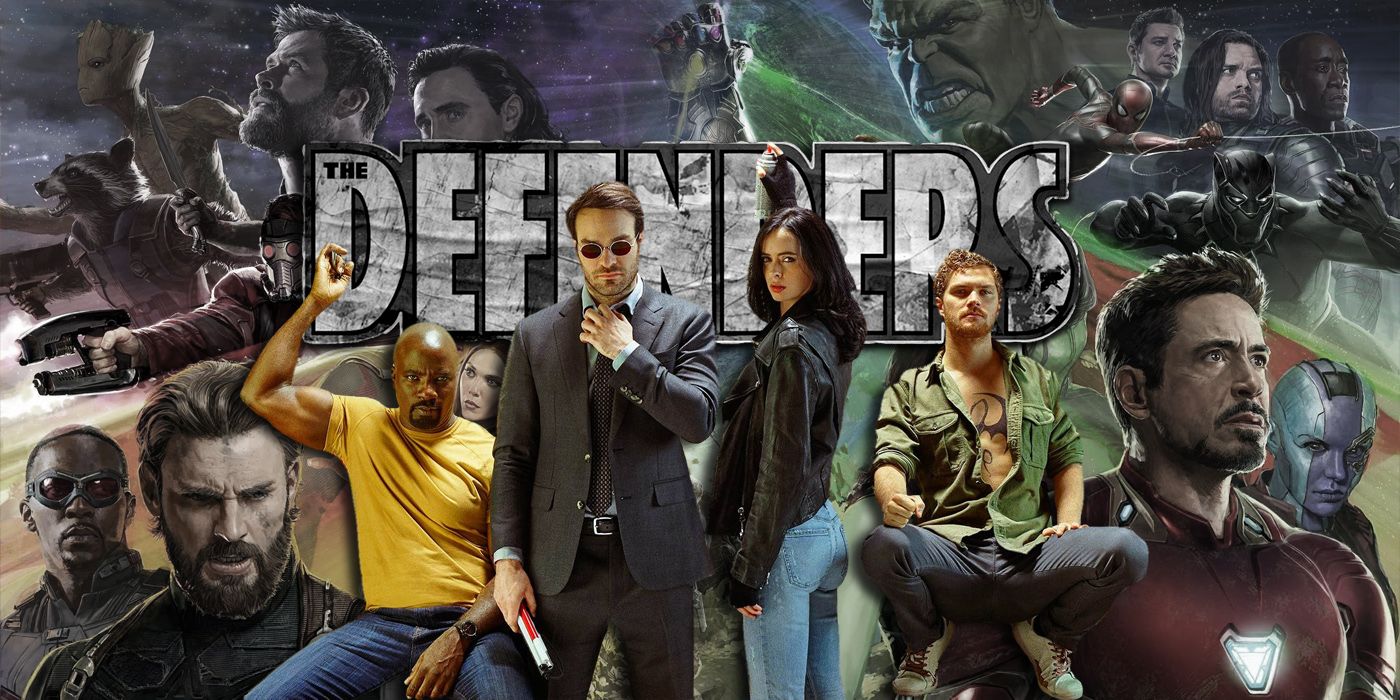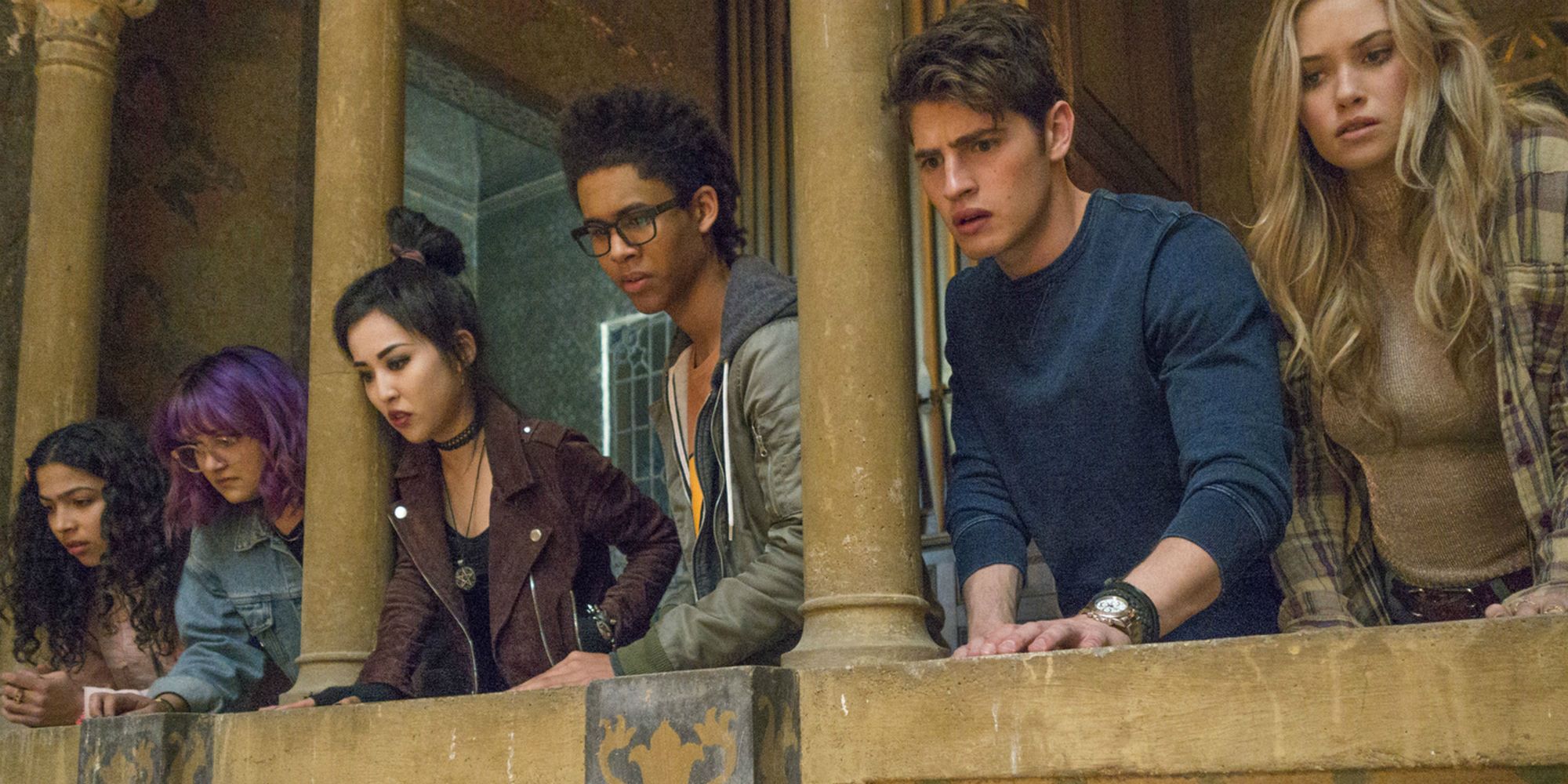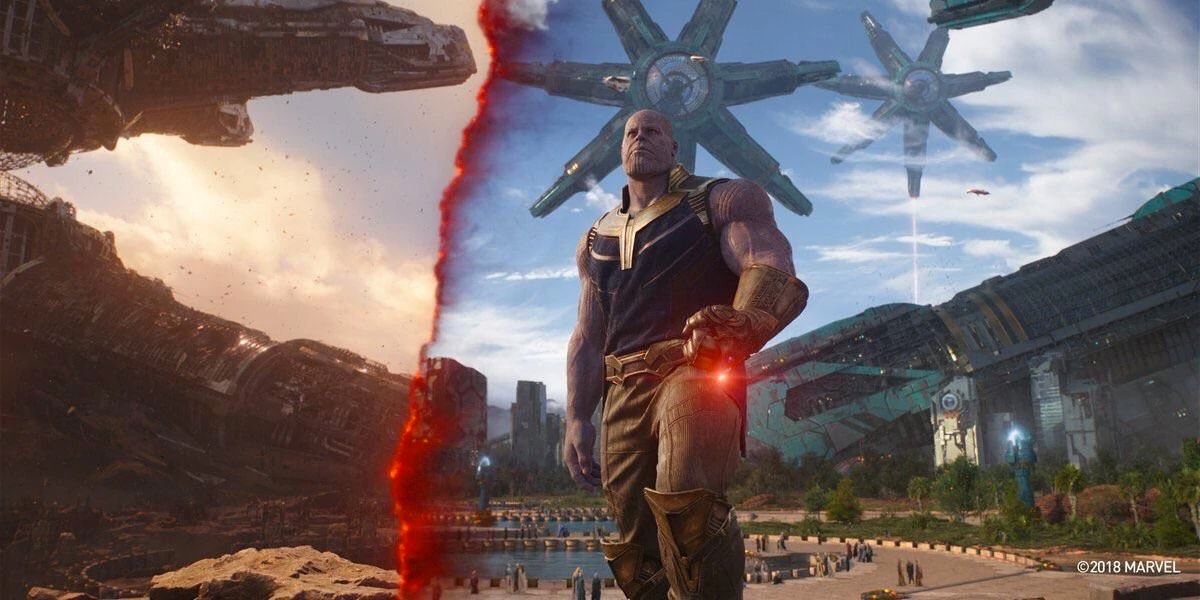The cliffhanger ending of Avengers: Infinity War left viewers shaken and amazed. Thanos had succeeded in his insane goal to "rebalance the universe", with a snap of his fingers erasing half of all life (including the deaths of some key Avengers). It was the biggest event in the Marvel Cinematic Universe to date, sure to have massive repercussions for the rest of the MCU. After all, the core principle of the MCU has always been "it's all connected", meaning that - in theory at least - the "snap" should have consequences in every other Marvel movie and TV series.
Except it's now become clear that it won't. Marvel Studios is actually avoiding dealing with the impact of Avengers: Infinity War's ending, reserving any consequences for Avengers 4. Marvel Television seem to be studiously ignoring it, with even Agents of S.H.I.E.L.D. dodging the bullet due to scheduling. Far from having repercussions on the rest of the MCU, Infinity War's cliffhanger appears to exist in a bubble, one that will only be explored in next year's sequel film.
Related: Agents of SHIELD Won't Have To Deal Directly With Avengers 4
It's frankly more than a little disappointing, and feels like a breach of the shared universe model that has made Marvel so successful. But is the problem really so severe? And if it is, why is Marvel going to such effort to avoid exploring the impact of Avengers: Infinity War?
- This Page: Even the Movies Aren't Dealing With Infinity War's Cliffhanger
- Page 2: Will Infinity War Be Dealt With Anywhere Else?
The Movies Themselves Are Avoiding The "Snap"
Until Phase 3, the MCU has largely progressed in a linear pattern, with every film set chronologically after the next. But Phase 3 is completely out of sequence, with Guardians of the Galaxy Vol. 2 set in 2014, and both Black Panther and Spider-Man: Homecoming exploring the fallout from Captain America: Civil War. The next two films are even more dramatically out of sync with the rest of the timeline. Ant-Man & the Wasp returns to the pre-"snap" status quo, although some marketing for the film has suggested events are happening at the same time as Infinity War. And Captain Marvel is actually set in the '90s.
Avengers: Infinity War set up a potentially fascinating - and horrific - new status quo. Half of the human race has vanished from existence in a moment at random. Thanos doesn't care for occupation, wealth, social standing, gender, language, tribe, or ethnicity, and as a result the entire world would have been plunged into chaos. Planes would have dropped from the sky, suddenly pilotless; fires would have raged out of control; skilled surgeons would have vanished even as they were about to operate; world leaders would have disappeared in the middle of their speeches. Some countries would fall into civil war, with uprisings and other dark acts. It's impossible to imagine the scale of the chaos - which frankly means that it deserved to be explored.
Until we get to Avengers 4, however, the Marvel movies are avoiding it completely, and when we get to that culmination it may be glossed over; while Avengers 4 will surely open with a sequence giving viewers a sense of how the world has changed (possibly after a time jump), the movie will then move on. It has to do so. We know the heroes who disappeared are all confirmed for their own sequels, so this isn't a story of if the heroes survive the end of the world, it's how they put it right. There's no way for Avengers 4 to do justice to the "snap" without sidelining its own narrative. And so, strangely, Marvel Studios has just carried out the most dramatic plot twist in the history of the MCU - but has no intention of exploring it.
Related: What We Know About The Plot Of Avengers 4
Agents of S.H.I.E.L.D. Won't Explore Infinity War's Consequences
This gap is where Agents of S.H.I.E.L.D. usually comes in. Although the relationship between Marvel Studios and Marvel Television has been rather more distant since 2015's corporate restructure, the series remains Marvel's official tie-in show. Agents of S.H.I.E.L.D. Season 5 built up towards Infinity War's cliffhanger, with several mentions of the Black Order's attack on New York. Then, to viewers' surprise, the series ended on a positive note, with no hint of the "snap". It simply didn't make sense.
In an interview with EW, S.H.I.E.L.D.'s showrunners were pressed on quite why the series had taken this unexpected approach. Jed Whedon explained that "there would really be no way for us to address it and keep our show intact." The scale of the Thanos' snap was even more intimidating given Agents of S.H.I.E.L.D. was, at the time, in "the bubble" - it had a 50/50 chance of either being renewed or canceled by ABC. That meant the showrunners had to create a season finale that could actually bring an end to the entire series, and the disappearance of half the universe would hardly be the right note. As Whedon added, "What we felt was that the safe play for our story, and for the integrity of our universe, was to operate outside of it."
ABC ultimately decided in favor of renewing Agents of S.H.I.E.L.D. for an abbreviated sixth season. But that's actually scheduled to air in Summer 2019, after the theatrical release of Avengers 4. Although ABC head Channing Dungey has insisted she has no knowledge of Marvel Studios' plans, this is certainly a fortuitous decision for the show. Not only did the season finale ignore Avengers: Infinity War's ending, but the next season will kick off after the issue has been resolved. The most important event in the history of the MCU has been sidestepped by the TV series that usually dedicates itself to filling out the movies.
Page 2 of 2: Will Infinity War Be Dealt With Anywhere Else?
The Marvel Netflix Shows Won't Deal with It Either
Don't expect the Marvel Netflix shows to deal with the consequences of Avengers: Infinity War, either. Ignoring the Marvel Studios/Television distance, those series aren't actually set in real-time; Jessica Jones Season 2 was actually the first series to be set after the passing of the Sokovia Accords in Captain America: Civil War, as revealed by references to the Raft. That means the next few series are likely set in late 2016 and early-to-mid 2017, over a year before the events of Avengers: Infinity War. It will probably be 2020 before the Marvel Netflix shows are actually set in the time of the Black Order's attack - at which point it would be easy to skip over.
Related: A Complete History Of The Marvel Cinematic Universe
Besides which, the Marvel Netflix series all have their own stories to tell. Unlike Agents of S.H.I.E.L.D., these shows have stayed slightly separate from the Marvel movies. It's true that Daredevil Season 1 ostensibly launched off the back of the reconstruction of New York, which had been ravaged by the Chitauri in 2012's The Avengers. Since then, though, the Marvel Netflix shows have kept their references to a bare minimum; Jessica Jones's mention of the Raft was the most significant crossover element in the last three years.
Marvel's Other TV Series Are Likely To Avoid Infinity War's Consequences
That brings us to the last two Marvel Television series, Runaways and Cloak & Dagger. In the case of Runaways, the series is so tangential to the rest of the MCU at present that only the most attentive viewers will have realized it's part of the same shared universe. Again, Runaways is telling its own story, and the ending of Avengers: Infinity War would complicate that; imagine the showrunners trying to deal with the idea of half the Pride suddenly disappearing. Besides which, Season 2 will probably pick up where the first season left off, meaning it too will technically be set before the events of Avengers: Infinity War.
There's only one series left that could potentially explore the consequences of Avengers: Infinity War, namely Cloak & Dagger, and there's no evidence that it will do so. While Cloak & Dagger is clearly more strongly connected to the rest of the MCU than Runaways - the prominence given to Roxxon in the trailers proves that - there have been no hints in marketing of a post-Infinity War plot. The series appears to be grounded in the racial politics of New Orleans, and it's unlikely a cosmic "snap" would fit well with this. It will be fascinating to watch the show for clues as to when it's actually set in the MCU timeline, but the fact remains that Cloak & Dagger is unlikely to be affected by Avengers: Infinity War.
Christopher Markus and Stephen McFeely, writers of Infinity War, noted that they didn't envy Marvel TV dealing with the "ripple effect" from the film. The answer seems to be a simple one; on the whole, Marvel Television intend to ignore it.
Is Thanos' "Snap" Really That Important?
Both Marvel Studios and Marvel Television seem to be going to unprecedented lengths to avoid dealing with the consequences of Avengers: Infinity War's "snap." And that raises a difficult question: is the "snap" really quite so important as it seems? On the face of it, that seems like a ridiculous question - after all, this involves the deaths of half the life in the universe. In reality, though, it's actually a disturbing one. The heroes who are killed are all characters who are known to appear in sequels, meaning the "snap" will be undone - or possibly even averted outright.
Related: Infinity War’s Thanos Isn't Really Marvel’s Thanos
One common theory is that Avengers 4 involves some element of time-travel. If that's the case, it's quite possible the Avengers will be able to rewrite history, preventing the "snap" from ever taking place. That would certainly explain why Marvel don't seem to be using the "snap" to set up a new status quo - because that status quo will be erased from continuity next year. Any movie or TV show set in the time after the "snap" would be wiped out of continuity too.
The "snap" should be the most important event in the history of the MCU. Instead, both Marvel Studios and Marvel Television are doing their level-best to ignore it. In dramatic terms, that's the least satisfactory approach Marvel can possibly take, and it suggests the cliffhanger ending of Avengers: Infinity War may not be quite so important to the future of the MCU as it seems at first viewing.

